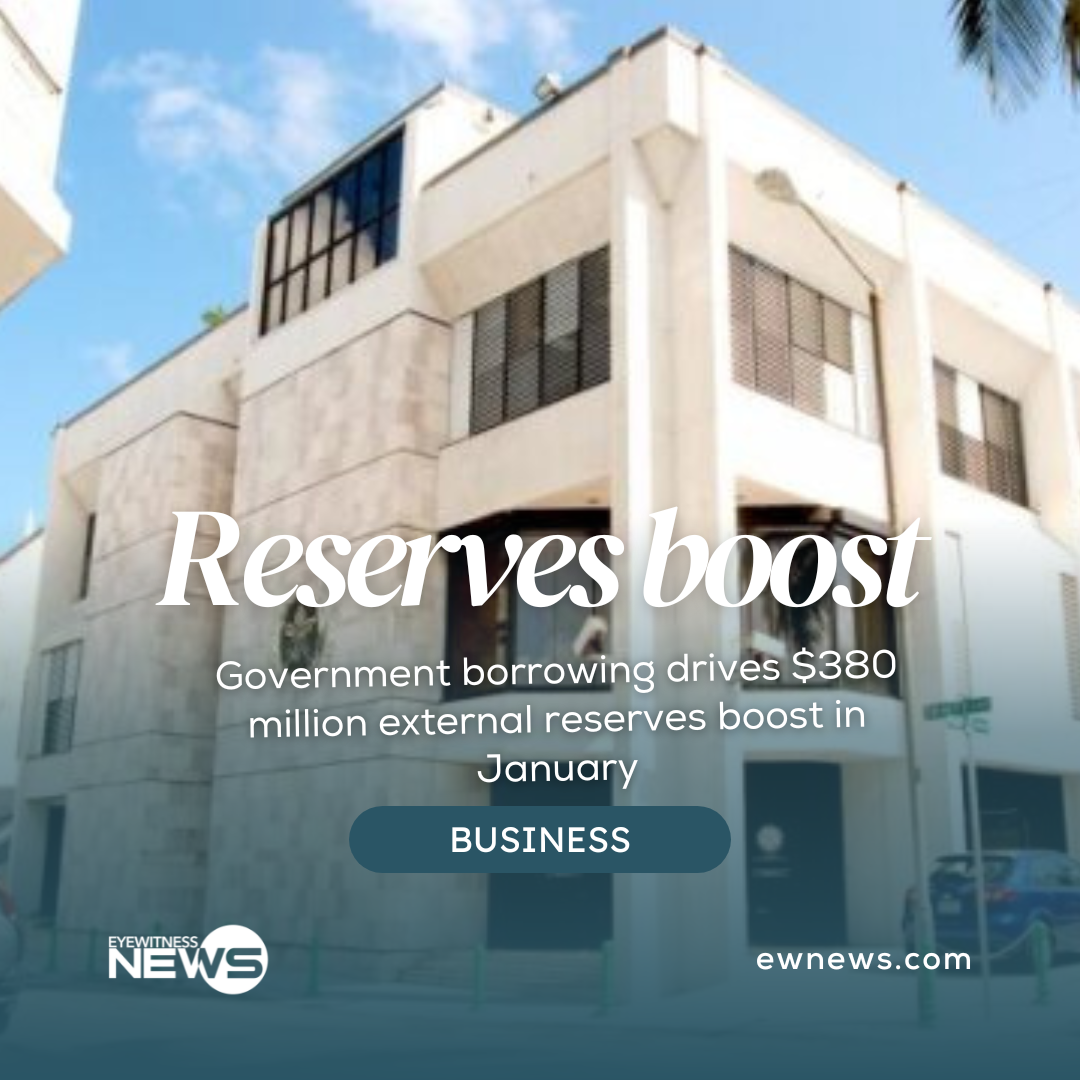NASSAU, BAHAMAS — The country’s external reserves experienced a significant growth of $380 million in January, marking a positive turnaround from the nearly $5 million decline during the same period in 2023, attributed to the Government’s external borrowing activities. The month closed with reserves standing at $2.7 billion.
According to the Central Bank’s Monthly Economic and Financial Developments Report for January, external reserves increased to $2,731.2 million, up from last year’s decline of $4.7 million, primarily due to proceeds from the Government’s external borrowing activities. This resulted in the Central Bank’s net foreign transactions with the public sector shifting to a net inflow of $272.3 million, compared to a net outflow of $38 million in the same period of 2023.
Furthermore, the Central Bank’s net purchases from commercial banks expanded to $87.0 million, a significant increase from $8.3 million the previous year. Commercial banks’ net purchases from their customers also rose to $73.5 million, up from a nearly flat position in the preceding year.
In terms of foreign currency sales for current account transactions, monthly outflows increased by $256.5 million (37.9 percent), reaching $932.6 million in January compared to the same period in 2023. Income remittances saw a notable rise to $257.3 million from $29 million a year earlier.
Payments for oil imports increased by $25.4 million, and expenditures on “other” current items, primarily credit and debit card-financed imports, rose by $24.9 million. Additionally, transfer payments increased by $4.9 million, while travel-related expenses grew by $4.1 million.






